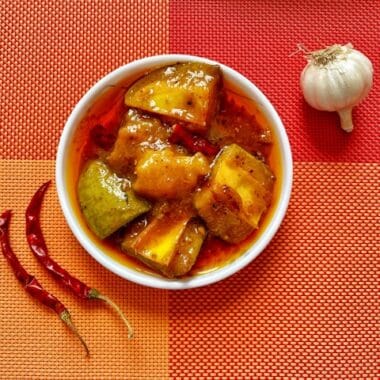Coconut oil is diverse for its health advantages, culinary applications and uses in skincare and haircare. In the market there are two types of coconut oils; cold pressed virgin coconut oil and cold pressed coconut oil, people get confused with those types of coconut oil present in the market. Although they both come from coconuts and share similarities they differ in production methods quality, nutritional content and uses. Knowing these differences can assist you in selecting the oil for your specific requirements.
What is Cold Pressed Coconut Oil?
Cold pressed coconut oil is obtained from coconut flesh known as copra. The extraction process involves crushing the dried copra at temperatures (below 120°F) degrees Celsius to preserve its nutrients. This method helps the oil to retain its aroma and flavor since it avoids excessive heat. Typically cold pressed coconut oil undergoes refinement to remove impurities for safe consumption. However this refining process may also result in the loss of some nutrients making it less nutrient rich compared to virgin coconut oil. Due to its smoke point, cold pressed coconut oil is widely used in cooking, baking and frying. It has become an ingredient in skincare and haircare products, recognized for its moisturizing benefits.
What is virgin cold pressed oil?
Now let’s talk about Cold Pressed Virgin Coconut Oil. Unlike its counterpart cold pressed virgin coconut oil is produced from fresh coconut meat instead of dried copra. To create it, the fresh coconut meat is grated, then the milk is extracted and the oil is separated. While conducting this process at low temperatures, it ensures that the oil will preserve its natural nutrients and antioxidants.
Virgin coconut oil is not refined and is also free from any chemical processing. It has a distinct aroma and flavor of coconut and also possesses higher amounts of vitamins, antioxidants, and healthy fatty acids. This form of coconut oil is regarded as the purest form, hence its wide use for health benefits, treatments of skin and hair, and raw consumption.
Key Differences
Source of Extraction
Cold-Pressed Coconut Oil: Extracted from dried coconut meat (copra).
Cold-Pressed Virgin Coconut Oil: Extracted from fresh coconut meat.
Processing Method
Cold-Pressed Coconut Oil: Often involves some degree of refining.
Unrefined cold-pressed virgin coconut oil is obtained through purely mechanical processes, such as fermentation or centrifugation.
Nutritional Content
Refined Coconut Oil: Probably loses a few nutrients in the refining process.
Cold-Pressed Virgin Coconut Oil: This has more nutrients, antioxidants, and healthy fatty acids due to less processing.
Aroma and Flavor
Cold-Pressed Coconut Oil: Has a milder aroma and flavor.
Cold-Pressed Virgin Coconut Oil: if pressed has a strong, natural coconut aroma and taste.
Applications
Cold-Pressed Coconut Oil: Perfect for cooking, frying and baking because of its high smoke point and mild taste.
Cold-Pressed Virgin Coconut Oil: Ideal for raw consumption, skincare and haircare, and health remedies.
What are the nutritional benefits of cold-pressed virgin coconut Oil?
Virgin coconut oil is a remarkable oil for its nutritional profile. It contains medium chain triglycerides (MCTs), which are easily digestible and provide a quick source of energy. MCTs also promote weight management by improving the metabolism of fats, hence their benefits are countless. Virgin coconut oil does contain laurIC acid, which is a compound that is antimicrobial as well as antiviral; hence it would be a healthy addition to one’s diet.
Virgin coconut oil also contains a high concentration of antioxidant substances that fight against free radicals and oxidative stress in the body. This is part the reason why it helps improve elasticity of the skin and prevents premature aging, as well as overall health of the skin. The oil has a high content of vitamin E which plays an effective role in moisturizing and healing both skin and hair.
Uses of Cold-Pressed Virgin Coconut Oil
Cooking: Virgin coconut oil has a lower smoke point than the refined oils, but it is excellent for light cooking and provides a delicious complement to various dishes.
Raw Consumption: A tablespoon of virgin coconut oil is taken daily by many for increased energy and better digestive support.
Skin and Haircare: It is a natural moisturizer which treats dry skin, reduces inflammation, and strengthens hair.
Oil Pulling: Virgin coconut oil has been used since traditional Ayurvedic practices and is effective in improving oral health by reducing bacteria in the mouth.
Nutritional benefits of cold-pressed coconut oil
Cold-pressed coconut oil is not as nutrient dense but offers several health benefits. It contains healthy fats that improve cholesterol levels by increasing HDL (good cholesterol) and lowering LDL (bad cholesterol). The oil’s mild flavor makes it a great choice for everyday cooking, as it does not overpower the taste of other dishes.
Cold pressed coconut oil contains antimicrobial properties due to the presence of lauric acid, albeit at slightly lower levels than in virgin coconut oil. It is a cheaper alternative for anyone who wants the benefits of using coconut oil in cooking.
Uses of Cold-Pressed Coconut Oil
Cooking: Particularly suitable for frying, baking, and sautéing because of its higher smoke point.
Homemade Beauty Products: Frequently used as a primary ingredient in homemade creams, lip balms, and hair masks.
Gives intense hydration and also gives relaxation when used as a body massage.
Environmental Impact and Sustainability
In choosing between virgin coconut oils extracted by cold pressing and the ordinary cold pressed coconut oil, it is important to bear in mind that there is an environmental aspect. Virgin coconut oil is often obtained by methods that are more sustainable, because it requires almost no processing and involves the use of fresh coconuts. Brands who practice fair trade and emphasis on organic farming can enhance environmental preservation as well as ethical production.
Choosing the Right Coconut Oil
The choice between cold-pressed virgin coconut oil and cold-pressed coconut oil lies on which purpose you are going to use the oil. If you are in search of an oily solution that is packed with nutrients and antioxidants for health benefits or skin treatments, then virgin coconut oil should be your best pick. On the other hand, if you require a multitasking cooking and baking ingredient, cold pressed coconut oil is a sensible as well as affordable alternative.
Frequently Asked Questions
1.In comparison to refined coconut oil, is cold-pressed coconut oil more nutritious?
Indeed, cold-pressed coconut oil is healthier than refined coconut oil as it contains more nutrients and natural compounds.
2.Is it okay to use virgin coconut oil at high temperatures when cooking?
Due to the low smoke point of virgin coconut oil, it is best for light cooking rather than deep frying.
3.How can I preserve my coconut oil?
Both types of coconut oil can be kept at room temperature in a cool and dry space. In the winter, the oil may harden, but it will melt when the temperature is raised.
Conclusion
Without a doubt, virgin cold-pressed coconut oil and cold-pressed coconut oil have their unique benefits; hence, they both will be valuable additions to the lifestyle of anyone. Knowing their preparation methods, nutritional value, and applications will help you make an informed choice and choose the oil that best serves you. Whether it is for the health benefits, culinary, or beauty purposes, using the right coconut oil will improve your well-being and quality of life










